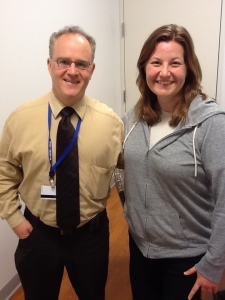Hope vs. No Hope. Let’s define “hope.”
There are some things I have hope for and some I do not. I say this because every couple months or so I get an email from a very hopeful family who thinks there is treatment, a cure, or something they can do for a loved one who has (somehow) been “diagnosed” with CJD. If you want to be hopeful, look for clinical trials in your city/state/country. For example, in the United States, we can search for clinical trials at the ClinicalTrials.gov website.
Do a search. Go ahead, I’ll wait.
Yeah…so two quinacrene studies? Thanks but no thanks. I thought we’d given up on that long ago…
There’s also a study from 2010… Well, it’s 2013 now. You get the idea. You’re going to have to be in the right city a the right time in order to get your loved one in on any clinical trials as they suffer from CJD. Then there’s the ethical question of prolonging their life — a.k.a their misery — through a clinical trial. I am not sure I would personally want mine prolonged in that fashion. Of course, the E200K in my family kills so quickly, I’m not sure patients like ours would get more than 2 months out of a trial at most. You never know. You could be the first person saved, right? Someone had to be the first to receive FDR’s polio cure, right?
So that’s the kind of “hope” we end up having.
When I say on here that I “have hope,” it’s hope for the next generation of my family. My generation may get lucky. You never know. But if you’re coming here with a relative who is currently suffering from CJD, they are dying. I am sorry. There’s not much modern medicine can do for them.
I joined a research study at UCSF. It might help someday. This is about all I can do at this time. But I felt, out of hope, that I had to try and offer myself up to be researched. UCSF is doing a great deal of research studies and clinical trials. If you are in or near or can somehow get to UCSF in San Francisco, California, then go for it.
Take a look here:
http://memory.ucsf.edu/research
As you can see, there are a ton more clinical trials listed than the government website lists. (Ok, two more but at least they are current). Also, UCSF is on a budget. For instance, I paid my way out there and back last year to enroll in the study. I paid for all my travel expenses. I chose not to stay overnight at the hospital so I wouldn’t cost them more money. I really want the money they have to go towards researching my brain health, not towards putting me up for a night and feeding me hospital food. I spent that night drinking with friends instead. 😉 No, they didn’t pay me to participate in the UCSF study.
Hope is the place to be. But you have to be realistic about it. I hope I can enter more research studies. I hope UCSF can find something useful out of what I have given so far, and will continue to give of myself in years to come. Medical research is slow and expensive. Be patient and be realistic, but never lose hope.
Research studies to join at the UCSF Memory & Aging Center:
http://memory.ucsf.edu/research/studies
There are six clinical trials listed right now at UCSF, all for Alzheimer’s Disease:
http://memory.ucsf.edu/research/clinical-trials
As you can see, there are currently no options for a patient with CJD to undergo a clinical trial in America that I personally know of right now. Maybe there are some I am unaware of at another research institution. Please tell me in the comments and give a link if you know of one at any time. (It is Sunday, April 7, 2013, so if you comment anytime now or years from now I will still see your comment).
A new link found between CJD and Alzheimer’s
The evidence of a link between Alzheimer’s and CJD is definitely beginning to stack up. I find it interesting because my mother’s mother has Alzheimer’s disease. When my mother was still alive, she was fascinated with AD and felt strongly that it had to do with amyloid plaques on the brain. She also thought it had to do with her mother’s fatty Polish diet… I’m not sure if that’s true, but that was her theory. My mother died of CJD, which she inherited from her father’s side of the family. I’m not sure what this means for me in the long-term, as both of my biological grandmothers suffered from a neurodegenerative disease.
Read the whole article from Washington University in St. Louis. The new research is promising and helping to connect the dots. Here’s an excerpt from the article:
“This interplay between amyloid and the prion protein raises questions about whether these diseases are really all that different, and whether there are common pathways involved in both conditions that can provide an avenue for new treatments,” says lead author Nupur Ghoshal, M.D., Ph.D., an investigator at Washington University’s Alzheimer’s Disease Research Center (ADRC).
-
Archives
- March 2024 (1)
- April 2021 (1)
- March 2021 (1)
- February 2021 (1)
- November 2020 (3)
- October 2020 (1)
- May 2018 (1)
- April 2018 (1)
- February 2015 (1)
- December 2014 (1)
- October 2014 (1)
- November 2013 (1)
-
Categories
-
RSS
Entries RSS
Comments RSS


